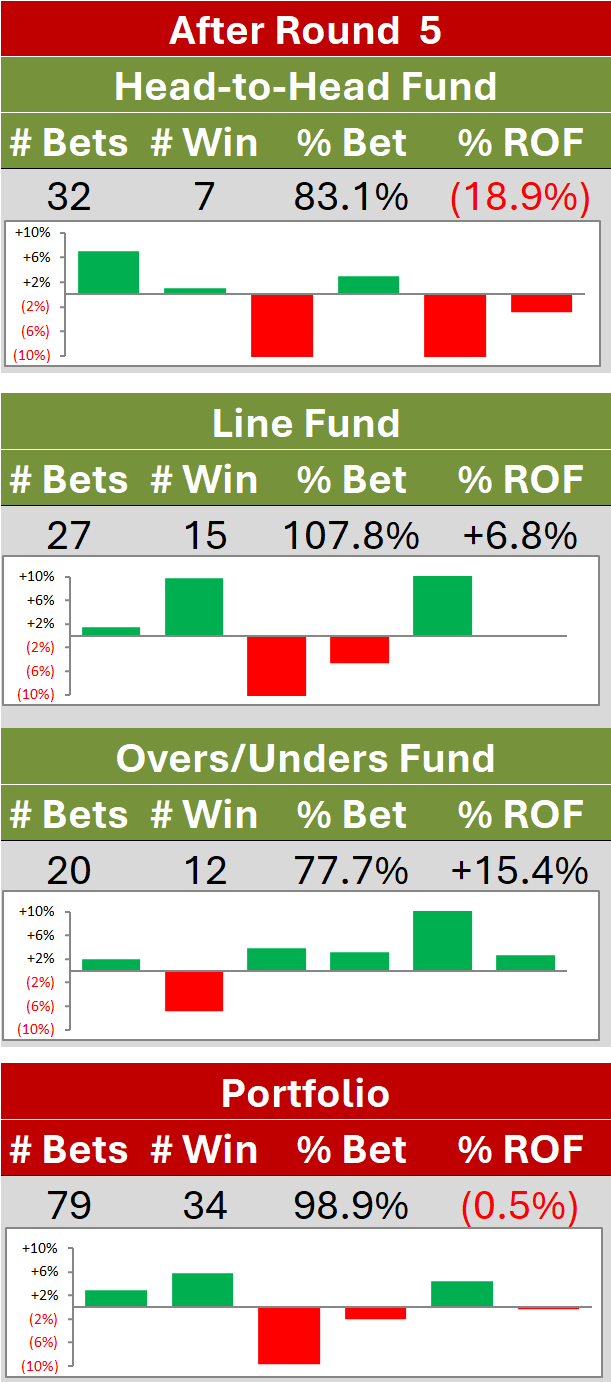Estimating Team-and-Venue Specific Home Ground Advantage Using the VSRS
/In the Very Simple Rating System as I've described it so far, a single parameter, HGA, is used to adjust the expected game margin to account for the well-documented advantages of playing at home. We found that, depending on the timeframe we consider and the performance metric that we chose to optimise, the estimated size of this advantage varied generally in the 6 to 8-point range.
Read More
